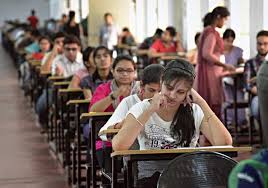 Bangalore, May 25: The state government has decided not to change the fee structure or the seat-sharing agreement for professional courses for this academic year.
Bangalore, May 25: The state government has decided not to change the fee structure or the seat-sharing agreement for professional courses for this academic year.
This was decided in a meeting held with the private educational institutions on Friday by Chief Minister Siddaramaiah, Minister for Higher Education R V Deshpande, Medical Education Minister Sharan Prakash Patil and education department officials.
Private college managements have been demanding a hike in the fees, stating that many of them are finding it difficult to sustain. The government decided it was too late to consider fee revision this year.
Deshpande said the meeting was “amicable” and the decision to go with last year"s structure was applicable to undergraduate and postgraduate courses of medicine and engineering. Patil said: “Any hike had to go through the fee and admission regulatory committees, which had to be formed before December.
“However, the previous government did not form any such committee, and the change in fee cannot be decided in haste now.” The Fee Regulatory Committee and Admission Overseeing Committee are prescribed by the Karnataka Professional Educational Institutions (Regulation of Admission and Determination of Fee) Act, 2006, which the government plans to implement from next year.
Hence, these committees will have to be formed before December as per the guidelines in order to consider any fee revision next year.
According to the existing structure, the fee for a medical seat is Rs 16,700 in government colleges and Rs 46,000 in private colleges. For engineering, the fee is Rs 18,090 in government and aided institutions, and Rs 36,090-41,590 in private colleges.
The government"s share of seats in private non-minority medical colleges is 40 per cent, and 25 per cent in minority institutions. In private engineering colleges, the government quota is 45 per cent of seats in non-minority and 40 per cent in minority colleges.
"The government has asked us to cooperate with them for this year, because it is already time for counselling and admissions. Any further delay would inconvenience the students," said M K Panduranga Shetty, vice-president, Karnataka Unaided Private Engineering Colleges Association.
He added that the managements of private colleges would meet again with government officials on May 28.
CET results on Tuesday
The Karnataka Examination Authority (KEA) will declare the results of the Common Entrance Test (CET) 2013 on May 28, according to KEA Administrative Officer S P Kulkarni.
The document verification process will be held on June 3 from 11 am for disabled and NCC/NSS candidates, on June 4 for sports-quota candidates and on June 5 for regular candidates.
Meanwhile, the counselling for the Post Graduate Entrance Test (PGET) to the Rajiv Gandhi University of Health Sciences will be held between May 26 and May 29. Details on www.rguhspget2013.com and www.rguhs.ac.in.







Comments
Add new comment